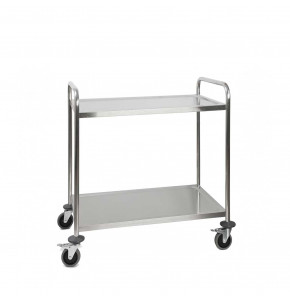The end of the traditional retail pharmacist?

Pharmacy shops are attracting fewer and fewer customers and many believe that they will disappear in the face of parapharmacies or online pharmacies. The sector is experiencing a major economic crisis, with one pharmacy closing every two days since 2015. But other professionals put things into perspective, and say that it is, on the contrary, a profession with a future, which just needs to modernise and adapt to the evolution of society. The role of the pharmacist is thus at the heart of the debates and its mutation seems to be the only solution.
In addition to being a health professional, the pharmacist is a businessman, and it is his duty to develop customer loyalty. Part of his customers, and therefore of his turnover, concerns OTC (over-the-counter) drugs and other well-being products. However, this important part of the clientele is tending to leave the pharmacies more and more to go to supermarkets, drugstores or online sales. This significant lack of customers is leading to an increasingly complicated economic situation. Many pharmacists are trying to rethink their profession and open up to new solutions in order to maintain the indispensable nature of their profession.
Towards a "new age"?
This is why a conference entitled "Quality and Pharmacy in the Dispensary: from primary care to medication reconciliation towards a new economic model" was held on 12 May, in which several economists, players and professionals from the sector took part to present their vision of "the pharmacy of tomorrow". On this occasion, Olivier Babeau, economist and professor at the University of Bordeaux, declared "The pharmacist does not have a future as a simple supplier of standardised boxes of medicines. [The pharmacy must therefore move into a new age and become a multi-purpose health intermediary".
In recent years, their profession has opened up to new missions, thanks in particular to the Bachelot law. They can now take part in therapeutic education and patient support initiatives; act as referral pharmacists in certain establishments that do not have an IUP; or offer advice and services to improve people's health.
Since 2009, the profession has been opening up its functions.
However, the question of remuneration poses a problem. Indeed, these new missions are not currently remunerated and the drop in prescriptions and drug purchases is being felt. They therefore need to establish a new economic model.
Indeed, with the growing ageing of the population, more and more people will need support and personal services that pharmacists, thanks to their qualifications, are perfectly suited to provide. The pharmacist will then focus on the well-being of the customer and move towards service and advice activities instead of just selling products. They could thus become an alternative to the shortage of general practitioners by providing vaccinations and screening tests, triaging patients and referring them to specialists, analysing treatment and monitoring patients. Indeed, according to a Pharma Système study, more than half of French people would be in favour of developing this type of service within pharmacies.
This is therefore the direction in which the profession is going to focus its future and transform itself.
 Francais
Francais 
 Cart
Cart Quote
Quote









